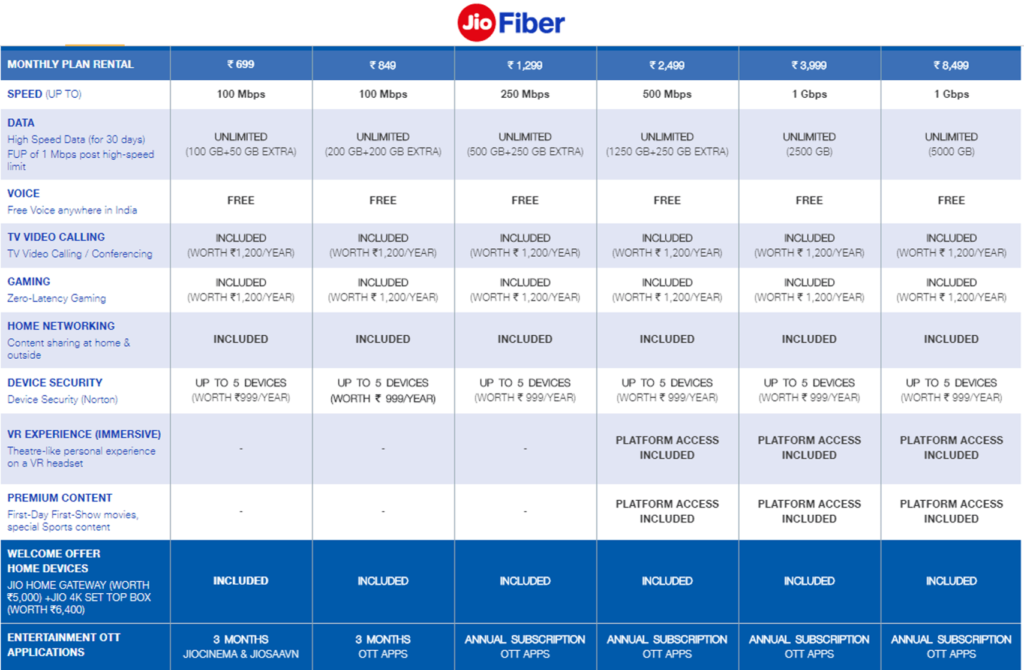Greetings, fellow viewers of bingeing shows! Have you had enough of your Netflix marathons being ruined by those annoying buffering circles? We’re going to go into the realm of internet plans that will keep your streaming as smooth as butter, so grab some popcorn and settle in.
The Streaming Speed Lowdown
First things first: let’s talk speed. We all know that gut-wrenching feeling when our favorite show starts pixelating mid-climax. To avoid such tragedies, here’s what you need:
- For the “I’m not too picky” crowd: 3 Mbps will do for standard definition.
- HD lovers, listen up: Aim for at least 5 Mbps to keep things crisp.
- 4K Ultra HD fanatics: You’ll want to crank it up to 25 Mbps or more. Go big or go home, right?
Internet Flavors: Pick Your Poison
Now, let’s break down your options:
- Fiber To The Home (FTTH): The Speedster
Pros: Lightning-fast, low latency, perfect for hardcore streamers and gamers.
Cons: Might cost you an arm and a leg, and not available everywhere. - Cable Internet: The Old Reliable
Pros: Widely available and decent speeds for your streaming needs.
Cons: Can be a bit moody during peak hours (much like us after a long day). - DSL: The Budget-Friendly Option
Pros: Easy on the wallet and available in most places.
Cons: Slower than its flashier cousins. But hey, patience is a virtue! - Satellite Internet: The Rural Hero
Pros: Brings internet to the middle of nowhere.
Cons: High latency and data caps. Not ideal for impatient streamers.
ISP Shopping Tips
When you’re on the hunt for the perfect ISP, keep these in mind:
- Reliability: Nobody likes a flaky friend, or a flaky internet connection.
- Data Caps: Unlimited is the way to go. Who wants to count gigabytes?
- Bundles: Sometimes, packaging internet with TV or phone can save you some dough.
The OTT Buffet
Now, let’s talk about what you’ll be watching:
- Netflix: The OG of binge-watching.
- Amazon Prime Video: Because who doesn’t love free shipping with their shows?
- Hulu: For when you just can’t wait to watch last night’s episode.
- Disney+: Nostalgia meets Baby Yoda. Need we say more?
Battle of the Broadband: Indian Edition
Comparison of different Broadband Plans
JioFiber Broadband plan
- Budget Pick: ₹399 for 30 Mbps
- Mid-Range: ₹999 for 150 Mbps with 16 OTT apps
- Splurge: ₹3,999 for a whopping 1 Gbps and 16 OTT apps

Airtel Xstream Fiber Broadband plan/Internet Connection Plan
- Entry-Level: ₹499 for 40 Mbps
- Sweet Spot: ₹999 for 200 Mbps and unlimited data plan
BSNL Bharat Fiber Broadband plan
- Budget-Friendly: ₹449 for 30 Mbps
- Value for Money: ₹999 for 200 Mbps and Disney+ Hotstar
Remember, availability might vary, so check what’s cooking in your area!
The Final Episode
Choosing the right internet plan is like finding the perfect series to binge – it takes a bit of research, but oh, is it worth it! Whether you’re a casual viewer or a dedicated couch potato, there’s a plan out there for you
FAQ’s
Q: How much internet speed do I really need for streaming?
A: It depends on your viewing habits. For standard definition, 3 Mbps is enough. For HD, aim for at least 5 Mbps. If you’re into 4K streaming, you’ll want at least 25 Mbps. Remember, these are per device, so if multiple people are streaming simultaneously, you’ll need higher speeds.
Q: Are data caps a big deal for streaming?
A: Absolutely! Streaming can eat up a lot of data, especially if you’re watching in HD or 4K. For example, streaming in HD can use up to 3 GB per hour, while 4K can use up to 7 GB per hour. If you’re a heavy streamer, look for plans with high data caps or, better yet, unlimited data.
Q: Is fiber internet worth the extra cost for streaming?
A: If it’s available in your area, fiber internet can be a game-changer for streaming. It offers faster speeds, lower latency, and more reliable performance, especially during peak hours. While it might be pricier, the smooth streaming experience can be worth it for serious binge-watchers.
Q: Can I use satellite internet for streaming?
A: While satellite internet can work for streaming, it’s not ideal. The high latency can cause buffering issues, and many satellite plans come with strict data caps. It’s a viable option if you live in a rural area with no other choices, but cable, DSL, or fiber are generally better for streaming if they’re available.
Q: Do I need a special router for streaming?
A: While you don’t necessarily need a special router, a good quality, up-to-date router can make a big difference in your streaming experience. Look for routers that support the latest Wi-Fi standards (like Wi-Fi 6) and dual-band or tri-band capabilities. This can help ensure smooth streaming, especially if you have multiple devices connected at once.
